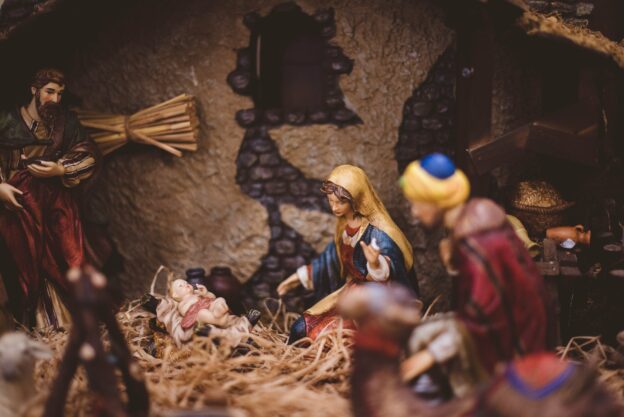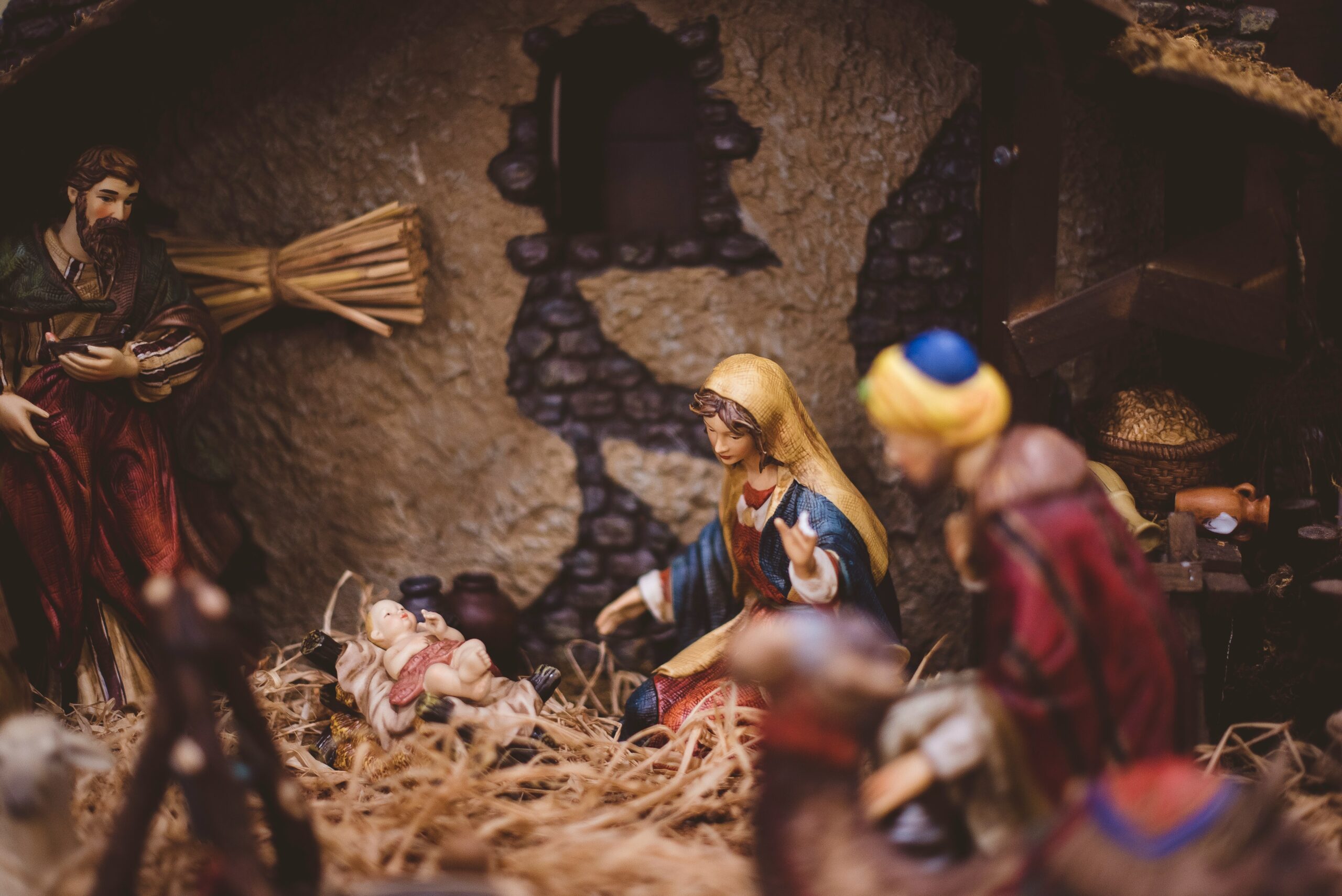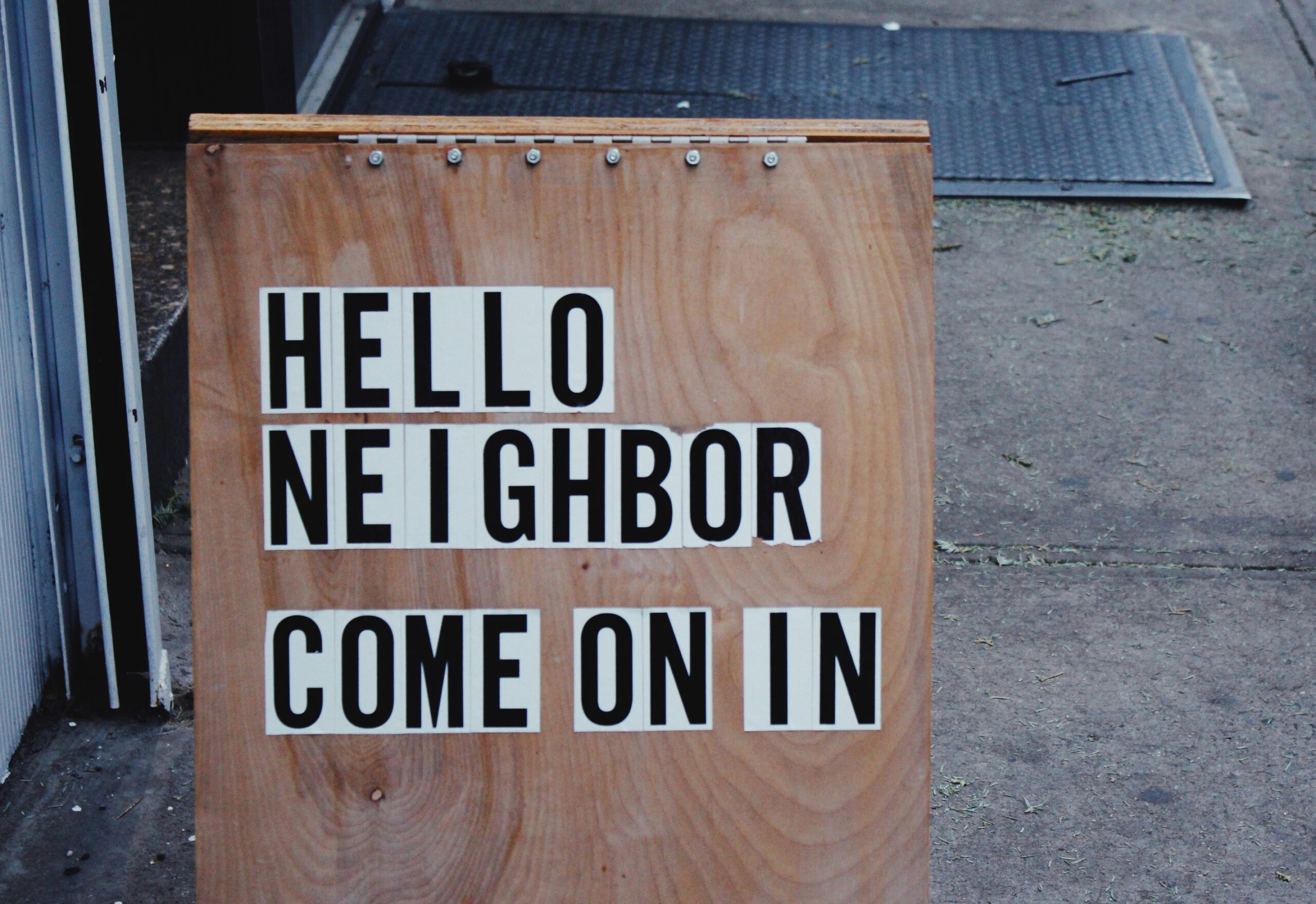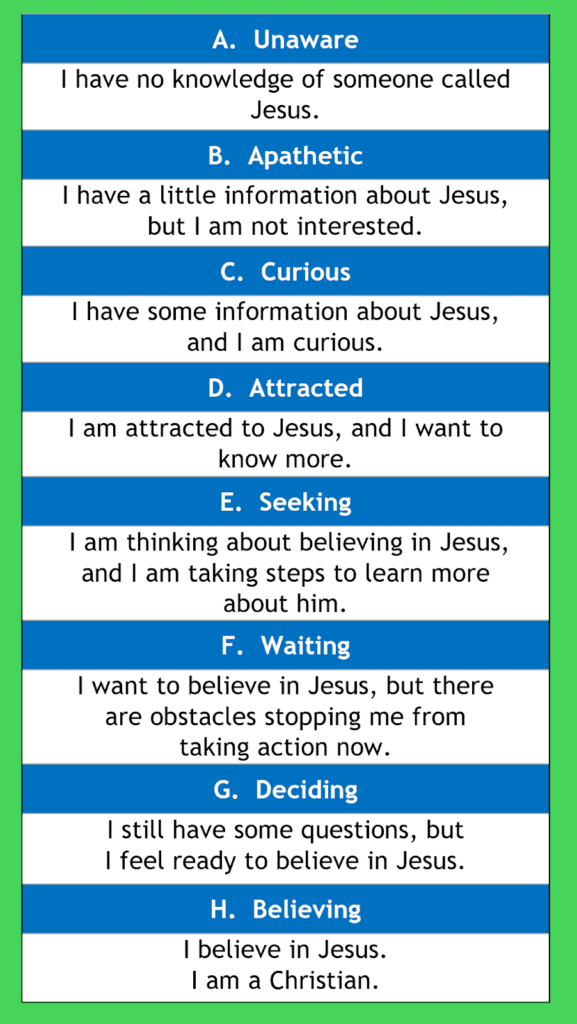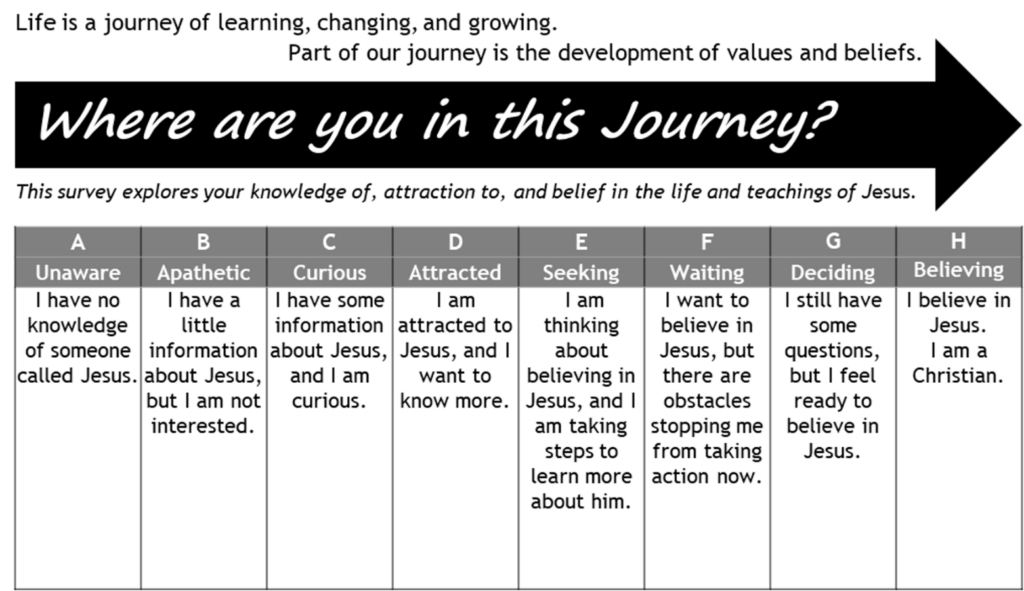Light Stories (Part 1) by James Loftin

Regardless of what type journey took you to Jesus, here is help for writing an effective Light Story.
Every person who has been transformed by Jesus has the desire to communicate God’s grace in a way that others will be curious and motivated to seek Jesus themselves. This desire to communicate Jesus is one fruit of the Spirit’s presence in our lives.
In a previous article, I invited readers to write their own Light Story, a brief and clear introduction to why and how you first began to follow Jesus. Perhaps you have shared some version of your testimony many times. That’s great, but keep reading. We tend to use insider language when we talk about our faith. These testimonies encourage like-minded church members, but the impact on outsiders is diminished. In Matthew 5, Jesus invites us to build taller lampstands to shine God’s light. In Colossians 4:3-6, Paul asks for prayer so that he might proclaim the Good News clearly, and he invites us to “be wise in the way you act toward outsiders.” In I Peter 3:15, Peter invites us to “prepare to give an answer,” that is to do the work to be effective in communicating the Gospel. With hard work and prayer, a Jesus follower can create a faith story that will be more effective with friends who are not from their background and know little about their faith.
Over the years, I have worked with countless Christians as they wrote their light stories. The most common comment they have shared is something like, “This was much harder than I expected, but I’m so glad that I took the time.” It is a challenge to know what words to use to describe the miracle of salvation. Part of the difficulty is related to the various paths we take to Jesus. Whatever your journey has been like, this series of articles provides guidance in writing a light story that will be effective in almost any context.
Just as we all have different personalities and fingerprints, our journeys into the family of God also vary. There is general agreement among researchers that most conversion experiences fall into three broad categories: (1) sudden; (2) unconscious – when an individual is raised under the influence of Christian beliefs and cannot document a clear turning point, and (3) gradual. I like to think of these categories as three journeys to saving faith in Jesus. To write an effective testimony, it is helpful to first think about your specific journey. Which of these best describes your journey of faith?
- The Straight Highway (“unconscious”)
Some of us experience Jesus early in life through loving families and friends, and our faith grows and develops over the rest of our lives. As a young child, they responded to Jesus with all the faith and commitment that a young child can offer. As they got older, their faith grew just as everything else in their life was growing. As a teenager, there were new challenges – and these young believers updated their commitments to Christ. Something similar happened in college. And that pattern has continued season after season. The Straight Highway gently rises before us as we walk with Jesus, grow in our faith, and shine his grace brighter and brighter every day.
I think this is God’s preferred plan – healthy, loving families who consistently demonstrate and communicate the grace of Jesus. One of the many benefits of the Straight Highway is that converts and their families do not have to suffer through the wild disobedience of adolescence and the related consequences.
However, people who have this journey sometimes whine a bit when they begin to write their testimonies. “But my life has been so boring.” “I never had a wild period.” “I grew up in the church.” If that sounds familiar, take a minute to thank God for the miracle of your salvation. He has a vested interest in helping you craft a witness that honors him and creates curiosity in your listeners. There is nothing boring about Jesus. If this is your journey, I provide some specific guidance on writing your stories later in this document.
- The Downward Cycle (“sudden”)
There are those who were unaware of God’s grace for a long portion of our lives. Although God had been loving us and working in our lives all along our journey, we never knew this, or we just rejected the thought. Finally, at just the right time, God broke through to our heart of hearts. God may have used the voice of a friend or a preacher or a family member. God may have used the Bible or other Christian literature. God may have used a crisis in your life or a supreme joy. But something woke you up. Perhaps you received new knowledge about God, or something you had previously heard suddenly became True in your heart. You realized that you had a need and desire for God, and you said yes to God’s grace with belief, repentance and gratitude. You entered the family of God. The direction of your life changed quickly and radically. Your priorities and behavior took a hundred- and eighty-degree turn.
Those who experienced The Downward Trail before conversion may have less trouble focusing your testimonies on a relatively concentrated period of time. In a moment or over a period of hours, days or weeks, you moved from darkness to light. You may, therefore, be able to relate to the radical and quick change that Jesus worked in Paul’s life that is described in Acts 9. You too suddenly began walking with Jesus on a new road toward a wonderful destination.
Sometimes this instantaneous or sudden type conversion has been seen as the norm or even the only true conversion. This narrow thinking is biblically unfounded and can cause authentic Christ followers who have different journeys to doubt their salvation.
- The Hilly Road (gradual)
James Engel describes this journey of conversion as:
…the most common manner in which those with little or no prior exposure or meaningful Christian background come to faith in Christ. It can extend over quite a period of time and encompass a progressive change from rejection of Christianity to acceptance. It may climax in what appears to be sudden conversion, but the act of turning or decision is secondary to the process itself. (The Road to Conversion: The Latest Research, posted by MissioNexus https://missionexus.org/the-road-to-conversion-the-latest-research/)
People on this journey were exposed to the grace of God in various times and places over a period of weeks, months, or years, but our responses to God were fickle. Sometimes we acknowledged God’s grace with gratitude, but our dominant responses were procrastination or rejection. There were many ups and downs in our journey. At times, we are sorry for our sins and pledged to do better. At other times, we ignored God and willfully made wrong turns. But the Hound of heaven persistently pursued us. Eventually we came to our senses and said yes to our Savior with our whole heart, soul, mind and strength. Our lives were transformed, we began to follow Jesus, and our journey has become more purposeful, peaceful, and joyful. The road of our lives has become straight (Proverbs 3:5-6).
Regardless of what type of conversion journey you have had, there is only one way to enter the family of God. Jesus is the way. In response to his grace, we believe, repent, and pledge our unwavering allegiance to follow him.
The Lord was with You All Along the Journey – Even When You Were Unaware
In a sense, there are actually no instantaneous conversions. All of us are converted through a series of holy touches by the Spirit of God. One beautiful aspect of Wesleyan theology is the concept of prevenient grace. This term relates to the persistent love of God focused on a person prior to their conversion. God moves, protects, and guides every life prior to justification when they say yes to God’s grace. We are unaware of most of these holy touches as they happen, but after conversion, we can appreciate many things we did not see earlier.
Take a minute now to review your journey. As you look back, there are many obvious moments when God broke through to you and you responded in some way. But linger a bit longer in sanctified remembering. What were some of the less obvious occasions when the Spirit was guiding, protecting or revealing grace? Take a moment now to thank God for those events and persons. As you sing Amazing Grace, remember to include these acts of prevenient grace along with the way you experienced God’s justifying grace.
Regardless of what path you took to begin following Jesus, your light story can be a powerful and effective tool that lifts high the light of Jesus. Empowered by the Spirit, your brief testimony will lead people from darkness to light. This is your most basic and important ministry tool. In the next two articles in this series, I will provide guidance on how to make language choices related to your specific journey to Jesus and examples that might inspire your own writing.
Subscribe
Get articles about mission, evangelism, leadership, discipleship and prayer delivered directly to your inbox – for free












